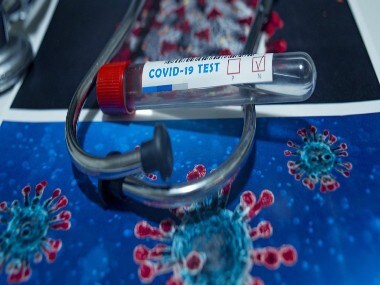A recent Instagram video, posted on 30 April 2020 by Madonna stated that she has coronavirus antibodies in her blood. The 61-year-old singer got tested for coronavirus and the results came out negative. She further added that the test showed that her body had some antibodies which provided immunity to her against the virus. [caption id=“attachment_8330551” align=“alignleft” width=“380”]  Representational image. Image by fernando zhiminaicela from Pixabay.[/caption]
Our immune system can detect any micro-organisms that enter the body. This foreign object is medically called an antigen. To fight that antigen, the immune system of the body forms an agent that is called an antibody. Moreover, the numerous vaccinations we get in our childhood activates our immune system to form antibodies against those diseases.
As with anything COVID-19 related, every discovery gives birth to many new questions. So let’s try to answer some of them.
Does having COVID-19 antibodies mean you are immune to the disease?
If a person has COVID-19 antibodies in their body, it means their immune system fought the infection without causing any trouble to the person. However, according to Dr Maria Van Kerkhove, World Health Organization, there is not enough evidence yet to prove if a person who has recovered from COVID-19 infection is protected from reinfection or not. It would be best to assume that having antibodies does not make you immune until there is more research.
Can these antibodies be used for the treatment of other COVID-19 patients?
Yes. Passive antibody therapy, also known as plasma therapy, is one of the most potent ways of providing immediate immunity to the people who are susceptible to a specific disease.
In this therapy, the doctor draws blood from a donor who has recovered from COVID-19 infection. The blood is then screened for virus-neutralizing antibodies with the help of tests such as ELISA. When the antibodies are found they are separated along with plasma from the rest of the blood. This plasma is then given to COVID-19 patients who have been approved for the therapy. Before the donation, the donor’s blood group is checked and the sample is screened for any other locally transmitted infections - only those that clear all the screenings are selected for plasma donation.
With the approval from the DCGI (Drug Controller General of India), the Indian Council of Medical Research (ICMR) started the human trials of plasma therapy on 18 April 2020. Since then, doctors have successfully delivered passive antibody therapy to a few patients with severe symptoms of COVID-19 infection in hospitals in New Delhi, Rajasthan and Mumbai. However, this treatment has shown promising results in only some of the patients. The ICMR has stated that the therapy is in the experimental stages and not been approved to be used as a treatment for COVID-19 infection.
Impact Shorts
More ShortsWho can donate antibodies-rich plasma?
The donor of the plasma who had been infected with COVID-19 infection must test negative twice in the RT-PCR test. The donor should not present with any symptoms for two weeks after being tested negative twice. The donor should not have any underlying condition such as diabetes, hepatitis B, C and HIV.
For more information, read our article on Passive Antibody Therapy.
Health articles in Firstpost are written by myUpchar.com, India’s first and biggest resource for verified medical information. At myUpchar, researchers and journalists work with doctors to bring you information on all things health.


)

)
)
)
)
)
)
)
)



